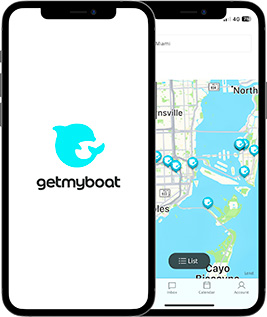The Lake of the Ozarks, an expansive body of water covering 92,000 acres with a shoreline stretching 1,150 miles in central Missouri, is renowned for recreational activities like boating, fishing, and water sports. Fueled by the Osage River, it supports a diverse range of fish species. Visitors engage in activities like swimming, fishing, hiking, camping, and golfing, while the lake's shores feature restaurants, bars, shops, and attractions.
Oversight of Missouri waterways is shared between two entities: the Missouri Highway Patrol Water Patrol Division, and the United States Coast Guard (USCG), collaborating closely to enforce regulations. Although the lake itself is entirely within Missouri, the surrounding region is recognized as the Ozarks, spanning portions of Arkansas, Oklahoma, and Kansas. The Ozarks constitute a low-mountain range, reaching a maximum elevation of approximately 2,800 feet (850 m), characterized by undulating hills, wooded areas, and pristine streams.
All operators on Getmyboat must strictly adhere to and take responsibility for operating within local guidelines, including obtaining necessary registrations, passes, and permits, meeting vessel, and captain requirements, utilizing designated docks and boating areas for commercial activities, and complying with other specifications outlined by local laws and facility regulations. To help Getmyboat operators comply with all applicable regulations, we have gathered the following essential details for boating in Lake of Ozarks:
Insurance:
Having sufficient insurance coverage is essential to safeguard your business against potential liabilities stemming from vessel operations. Therefore, our partner, Boat Charter Insurance, possesses the expertise to create a personalized insurance plan that aligns with your specific needs.
Boater Education Certificate:
In Missouri, individuals operating motorized boats and personal watercraft (PWC) born after January 1, 1984, must successfully complete a boater safety course and possess a boater education card as mandated by law.
Watercraft Registration:
Within the state of Missouri in the United States, every motorboat, sailboat, and personal watercraft (PWC) utilized on public waters, including Lake of the Ozarks, must undergo registration with the Missouri Department of Revenue (DOR). The registration cost is contingent on the vessel's length and the motor type, and registrations are effective for one year. You can register online through the DOR website.
Lake of the Ozarks Annual Launch Permit:
Lake of the Ozarks offers three paved boat ramps for your convenience. Both Grand Glaize Beach and Pa He Tsi boast four-lane ramps, while Public Beach #1 features a two-lane ramp. Grand Glaize Beach and Public Beach #1 offer year-round access, while the Pa He Tsi ramp is open from March to October. Visit the MO State Parks website or call 573-348-1233 for more information.
USCG Captain's License:
To captain a charter or passenger vessel, it is essential for boat captains to possess a valid U.S. Coast Guard (USCG) license tailored to the size and type of the vessel. For boats with a capacity of up to six passengers, a 6-pack license is mandatory. Vessels accommodating more than six passengers necessitate a Master Captain's license. As the captain, you carry the primary responsibility for ensuring the safety of both the vessel and all passengers. For additional information on captain's licenses, please visit the Mariners Learning System website. Use the code GETMYBOAT10 to receive a 10% discount.
Certificate of Inspection (COI):
Conducting operations with commercial passenger boats on the Lake of Ozarks necessitates strict adherence to safety protocols. The Coast Guard Certificate of Inspection (COI) plays a pivotal role in ensuring passenger well-being, serving as a foundation for safety compliance. This certification rigorously assesses vessels, confirming their adherence to stringent safety regulations and their provision of essential lifesaving equipment such as fire extinguishers and life jackets. Additionally, the COI mandates the presence of a properly qualified crew to navigate the vessel safely. For detailed information, please consult the USCG website.
Fishing Permits:
To run a fishing charter, it's essential to secure a fishing license, a requirement for individuals or businesses conducting boat trips with paying passengers for fishing. This license grants the captain and crew permission to fish for specific species in designated areas while ensuring adherence to fishing regulations. You can conveniently purchase this license online through the MDC website.
Business License:
To operate, obtain a business license from the city or county where your business is situated. Secure a Missouri sales tax permit by completing the process online through the Missouri Department of Revenue's website.
Additional Information:
- Every boat must be equipped with essential safety gear, including life jackets for all passengers, a fire extinguisher, and a sounding device.
- Prioritize safety training by ensuring you and your crew are proficient in first aid, CPR, and other emergency procedures.
- Acquaint yourself with Missouri Water Patrol regulations governing boating safety and passenger-carrying vessels, covering aspects like speed limits, navigation lights, and passenger conduct.
- The operator of a for-hire vessel must be certified in first aid and CPR.
- Adhere to all applicable US Coast Guard safety regulations for passenger-carrying vessels to ensure your vessel meets required standards.
- Obtain a valid Certificate of Documentation (COD) from the Coast Guard indicating your vessel's commercial passenger use.
- Obtain a valid Missouri state permit for all commercial boats, and register your vessel with the Missouri Department of Conservation (MDC).
- Boat operators must prioritize passenger safety, taking measures such as providing safety briefings and ensuring passengers wear life jackets.
Helpful Resources:
Please be aware that these are general guidelines, and specific requirements may differ based on the size and type of your charter operation. It is strongly advised to seek guidance from the US Coast Guard and Missouri Water Patrol for the most up-to-date regulations and recommendations.















